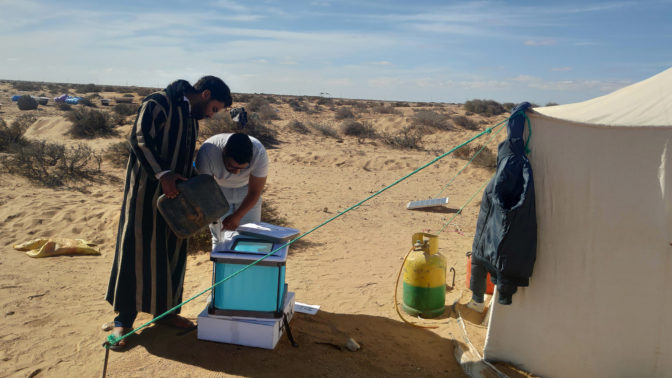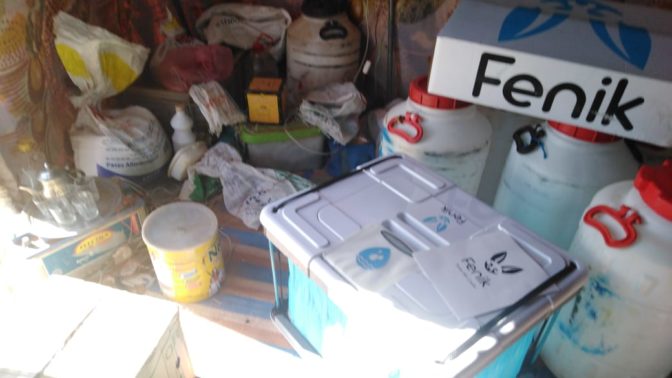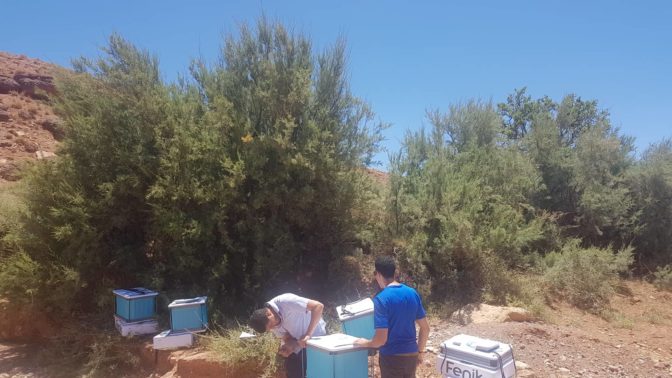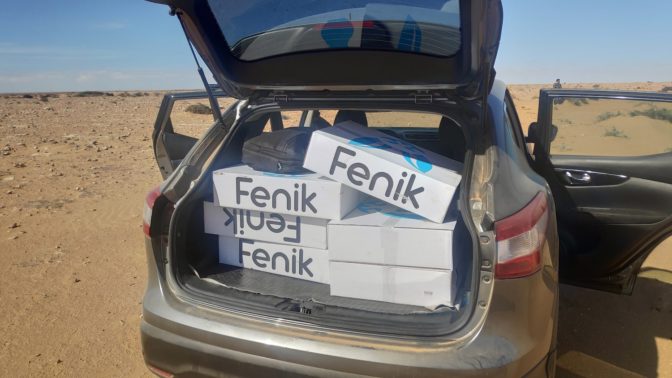Fenik Yuma 60L
The Fenik Yuma 60L (Fenik) is a low-cost, electricity-free mobile refrigeration unit.
Key Facts
- Utilizing the phenomenon of evaporative cooling, Fenik is ideal for use in off-grid rural areas with low relative humidity.
- The company has taken tested solutions like the Zeer Pot and have upgraded them for modern use.
- State-of-the-art materials and improved design have created more effective, more durable, easier to use, and mass-producible units.
- The units have extended storage times of fresh food from days to weeks in pilot program tests.
- There is a prototype for a solar power assisted unit which would use thermoelectric cooling to bring down the temperature even further.

Key Features
Fenik is an electricity-free mobile refrigeration unit which runs at low-cost. Utilizing the phenomenon of evaporative cooling, it is ideal for use in off-grid rural areas with low relative humidity.
Evaporative cooling has been employed successfully for centuries in products like the Zeer Pot. Proven to be effective for agricultural use, these products have been known to triple or quadruple the shelf-life of most produce. The company has taken these inventions and upgraded them for modern use. Using state-of-the-art materials and improved design, they have created more effective, more durable, easier to use, and mass-producible units. The units reach the same thermal efficiency as the Zeer Pot and have extended storage times of fresh food from days to weeks in pilot program tests.
Fenik has a wide range of applicability and potential markets given the current post-harvest food spoilage levels in developing markets.
Social Impact
In developing countries, refrigeration can be both expensive and inaccessible. Lack of refrigeration is one of the main causes of the high spoilage rates for food before it even reaches the consumer. The UN estimates post-harvest losses as high as 45% for fruits and vegetables, with a total loss of USD $4 billion in Africa annually. Given that extending reliable electrification (and therefore traditional refrigeration methods) to everyone in these developing markets is cost-prohibitive, a revolutionary refrigeration solution is needed that does not rely on traditional compression technology requiring electricity.
Specifically, the need for alternative refrigeration solutions in Morocco is illustrated by the current condition of Morocco’s cold-chain infrastructure. Total refrigeration capacity in the country is 227,000 tons with only 27,000 tons dedicated to crops. In the context of production capacity, Morocco produces 6,200,000 metric tons of produce per year. Due to the lack of cold storage capacity, Morocco experiences an estimated 30-35% loss of fruit and vegetable crops. This loss impacts the country on all levels of society. It depletes the income of the 75% rural poor who depend on agriculture. Furthermore it impacts the quality of horticultural exports which are the second-largest export segment in the Moroccan economy, making up 15% of the national product.
Future Plans
In the long term, we envision making many other different products that can be used at different parts of the agricultural supply chain. At its core, Fenik is more than just an evaporative cooling technology – our goal is to increase access to refrigeration all around the world, which is why we are continuing to develop solar powered technologies as well. We are already working on a prototype for a solar power assisted unit which would use thermoelectric cooling to bring down the temperature even further. Our hope is that as our customers attain higher income levels from using our first unit (the Fenik Yuma 60L) they will continue to grow with purchasing our higher powered units down the line.
Main Target Group
Government development projects, NGOs, refugee camps, outdoor enthusiasts, as well as rural, low-income consumers.
Main User
Rural, low-income consumers and outdoor enthusiasts.




